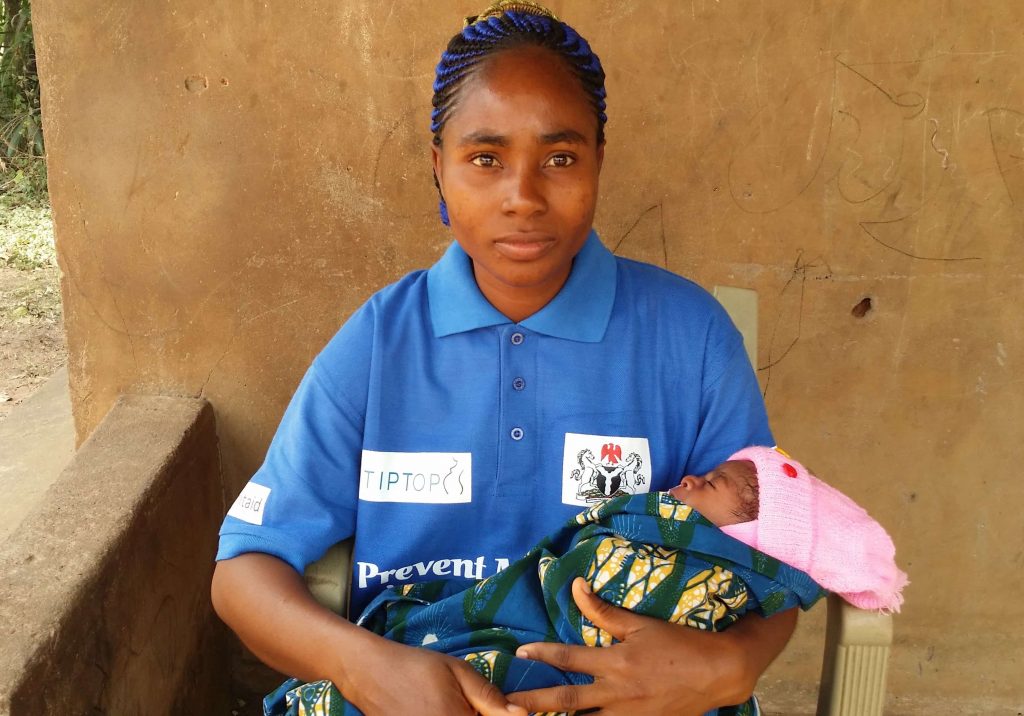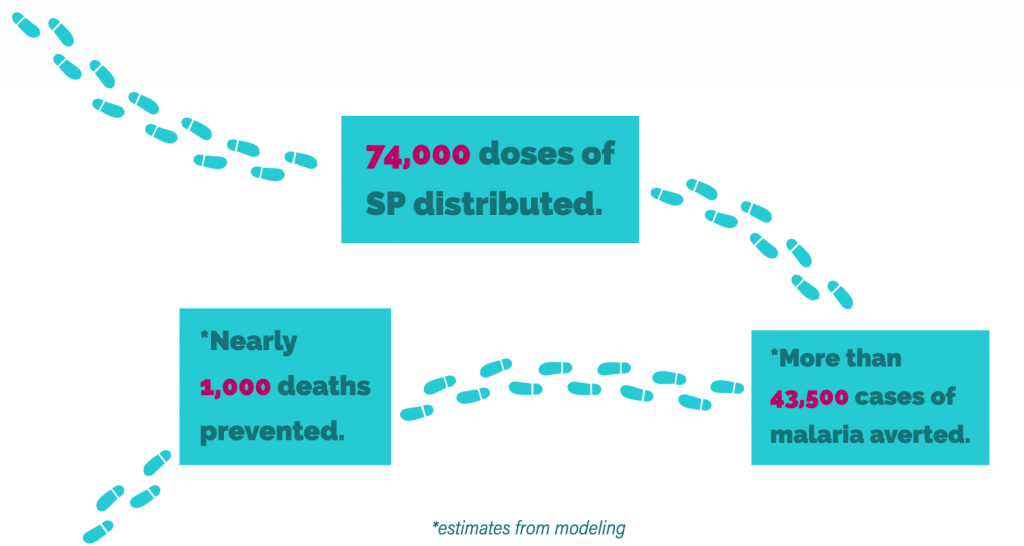The path to ending malaria for good is best walked by community health workers

When Onwe Ujunwa talks about malaria, her neighbors listen. The Nigerian mother knows the heartbreak of the disease and the power of prevention.
As a community health worker (CHW), she and thousands of others like her are helping to keep pregnant women and their families safe from malaria.
CHWs are at the frontline, bringing health services that otherwise would be inaccessible in villages and rural areas. They intimately understand the communities they serve and are instrumental in improving access to—and demand for—basic health services, including malaria prevention as part of comprehensive maternal and child health services for the pregnant women, who are among the most vulnerable to malaria.

If we are to accelerate progress in defeating malaria, preventing the disease in pregnancy is key—pregnant women living in malaria-prevalent countries should sleep under an insecticide-treated net and in most sub-Saharan African countries expect anti-malaria medicine during their pregnancy. Malaria prevention should be standard, as routine as any other antenatal service—from blood pressure to vitamins.
Fresh product and policy approaches lead to big gains
Community health workers are the drivers of Transforming Intermittent Preventive Treatment for Optimal Pregnancy (TIPTOP), an ambitious project underway in Democratic Republic of Congo (DRC), Nigeria, Madagascar and Mozambique—countries where malaria causes up to 10 percent of maternal deaths. TIPTOP is supported by Unitaid and led by Jhpiego in partnership with ISGlobal, the World Health Organization (WHO) and Medicines for Malaria Venture.
TIPTOP is pioneering a community-based approach that affords pregnant women the opportunity to receive intermittent preventive treatment at the community level (C-IPTp) with quality-assured sulfadoxine-pyrimethamine (SP), an antimalarial medicine. This community engagement approach is helping to build critical evidence for the WHO to eventually review its IPTp policy and potentially revise it, so that more women can access the lifesaving treatment they need during pregnancy.
To ensure pregnant women receive the highest quality medicines to prevent malaria during pregnancy, a tenet of this approach focuses on increasing access to, and demand for WHO quality-assured SP. TIPTOP is helping to increase the number of ‘pre-qualified’ drug manufacturers for SP, and simultaneously, it is increasing demand for quality-assured SP among pregnant women and health providers, in coordination with CHWs and civil society organizations. These efforts are helping to shape the market for more equitable and viable access to quality-assured SP.

Early data is extremely promising. Between August 2018 and February 2019, over 74,000 doses of SP have been distributed in TIPTOP-supported districts. Community health workers have distributed more than half of these doses—demonstrating their vital role. The project is dramatically increasing the number of pregnant women receiving IPTp. Indeed, modeling indicates that these 6 months of results will avert more than 43,500 cases of malaria, and nearly 1,000 deaths.

Our solutions are good—especially when we bring them closer to the client
In Africa, approximately 30 million pregnant women are at risk of malaria. Sleeping under an insecticide-treated net and taking SP can prevent malaria in pregnancy. Yet for many reasons the majority of eligible women don’t access these services: they don’t know the risk of malaria; they live too far from a health center; or they don’t have adequate transport to get there.
Years of providing IPTp in health facilities have led to significant reductions in malaria in pregnant women, but not enough. We need to go deeper and farther to reach women. This includes getting women to ANC earlier and throughout their pregnancy so they can receive comprehensive care, including malaria prevention.
From the community, for the community
In Madagascar, health facility staff work closely with CHWs who receive text messages to remind pregnant women of their ANC appointments. Seven months after rolling out TIPTOP there, the percentage of pregnant women who attend their first ANC visit at the health facility after being referred by a CHW has increased from 23% to 51%. This underscores the key role of the CHW, who is well positioned to promote comprehensive care, including malaria prevention.
In Nigeria, Onwe Ujunwa educates from experience. She lost two pregnancies to suspected malaria. She was selected by her community to serve as a CHW and now shares her knowledge and experience with pregnant women in her community, referring them to ANC and distributing SP to those women who are eligible.
In Mozambique, Marta José is a volunteer lay community counselor supporting efforts to introduce IPTp at the community level through the TIPTOP project. Marta mobilizes pregnant women in her community, telling them, “look, I have a healthy baby. He was born with a good weight. He is healthy because I took SP. I have four children and took SP with all of my pregnancies and all were healthy when they were born.”
“The pregnant women believe me and trust the advice I give them,” she says.
In DRC, after almost losing her newborn, Lamama Makambu reached out to Mama Mundele, a CHW in her area, who encouraged her to go to ANC and receive treatment during pregnancy to avoid malaria. These messages of positive change inspired Makambu to become a TIPTOP health educator herself, reaching out to her peers in her community.
Ujunwa, José, Makambu and many other CHWs serve the hardest to reach pregnant women and drastically reduce missed opportunities for these women to receive care. Complementary to the WHO policy on IPTp are the WHO 2018 guidelines on health policy and system support to optimize CHW programs, which reinforce the need to better engage communities and CHWs to achieve universal health coverage and to prevent malaria. TIPTOP is a big step forward for these efforts.

As we mark World Malaria Day and consider how to “end malaria for good,” we must engage the local community. CHWs like Ujunwa, José and Makambu are making a difference in the lives of pregnant women and their babies every day, driving an end to malaria for good, in their communities and across the world.




